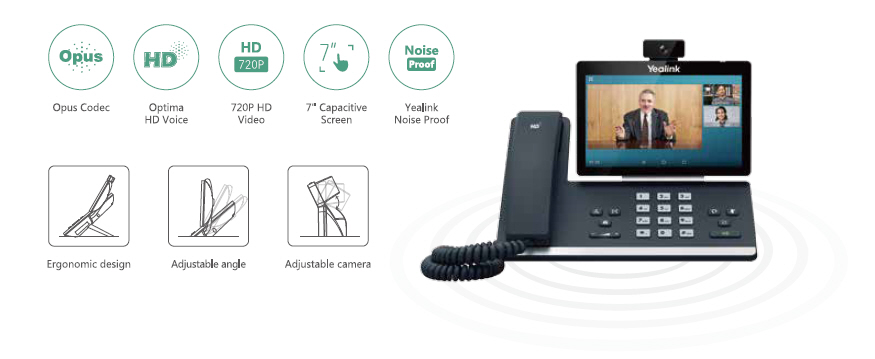Introduction
In today's fast-paced business world, effective top Business Phone System communication is crucial for success. A reliable and efficient telephone system is an essential tool for any business, regardless of its size. However, with so many options available in the market, choosing the best business telephone system that fits your budget can be a daunting task. This article aims to provide you with valuable tips and insights to help you make an informed decision.
Why a Business Telephone System Matters?
Having a reliable business telephone system is vital for several reasons. It allows seamless communication within your organization and with clients or customers. Whether it's making sales calls, resolving customer inquiries, or coordinating projects among team members, a good telephone system ensures smooth operations and enhances productivity. Moreover, it helps build credibility and professionalism by providing a dedicated line for your business.
Tips for Choosing the Best Business Telephone System on a Budget
1. Assess Your Needs
Before diving into the vast array of options available in the market, it's important to assess your specific needs and requirements. Consider factors such as the number of employees who will be using the system, call volume, features required (such as call forwarding or voicemail), scalability options, and budget constraints. Having a clear understanding of your needs will help you narrow down your choices and find a system that aligns perfectly with your business requirements.
2. Determine Your Budget
Setting a budget is crucial when selecting a business telephone system. Determine how much you are willing to spend on both initial setup costs and ongoing maintenance expenses. Remember that while investing in a high-quality system might require more upfront costs, it can save you money in the long run by reducing downtime and minimizing repair or replacement expenses.

3. Research Different Types of Systems
There are several types of telephone systems available in the market, each catering to different business needs and budgets. Some popular options include:
- Traditional Landline Systems: These systems use copper wires and physical infrastructure to transmit voice calls. While they are reliable, they can be costly to set up and maintain. VoIP Phone Systems: VoIP (Voice over Internet Protocol) phone systems use the internet to transmit voice calls. They are cost-effective, highly scalable, and offer a wide range of features. Cloud-Based Phone Systems: Cloud-based systems store all your communication data in the cloud, eliminating the need for physical hardware. They are flexible, easy to set up, and offer seamless integration with other business applications.
4. Consider Scalability
When choosing a business telephone system, it's essential to consider scalability options. Your business might grow in the future, and you don't want to invest in a system that can't accommodate additional lines or users. Look for systems that offer easy scalability so that you can expand your communication infrastructure as your business expands.
5. Evaluate Features and Functionality
Different telephone systems come with varying features and functionalities. Identify the key features that are essential for your business operations. Do you need call forwarding, voicemail, conference calling, or auto-attendant? Make a list of must-have features and prioritize them based on their importance.
6. Assess Call Quality and Reliability
One of the most critical factors to consider when choosing a business telephone system is call quality and reliability. Poor call quality can lead to miscommunication and frustration among employees and clients alike. Look for systems that offer high-definition voice quality and have a reputation for reliability.
FAQS
Q1: What is VoIP?
A1: VoIP stands for Voice over Internet Protocol. It is a technology that allows voice calls to be transmitted over an internet connection instead of traditional phone lines.
Q2: Can I use my existing phones with a VoIP phone system?
A2: In most cases, yes. VoIP phone systems are compatible with a wide range of devices, including traditional desk phones and smartphones. However, it's best to check with the provider to ensure compatibility.
Q3: What is a PBX phone system?
A3: A PBX (Private Branch Exchange) phone system is a private telephone network used within an organization. It allows for internal communication between employees and provides external calling capabilities.
Q4: Are cloud-based phone systems secure?
A4: Yes, cloud-based phone systems are secure. They use encryption protocols to protect your communication data and offer robust security features to prevent unauthorized access.
Q5: Can I integrate a business telephone system with other applications?
A5: Yes, many business telephone systems offer seamless integration with other applications such as customer relationship management (CRM) software or email clients. This integration enhances productivity by allowing you to streamline communication processes.
Q6: How can a business telephone system help me save money?
A6: Business telephone systems, especially VoIP or cloud-based systems, are generally more cost-effective than traditional landline systems. They eliminate the need for expensive hardware and reduce long-distance call charges. Additionally, they offer features like virtual numbers and conference calling that can significantly reduce communication expenses.
Conclusion
Choosing the best business telephone system on a budget requires careful consideration of your specific needs and requirements. By assessing your needs, determining your budget, researching different types of systems, considering scalability options, evaluating features and functionality, and assessing call quality and reliability, you can make an informed decision that aligns perfectly with your business goals. Remember that effective communication is key to success in today's competitive business landscape, so invest wisely in a reliable and efficient telephone system.